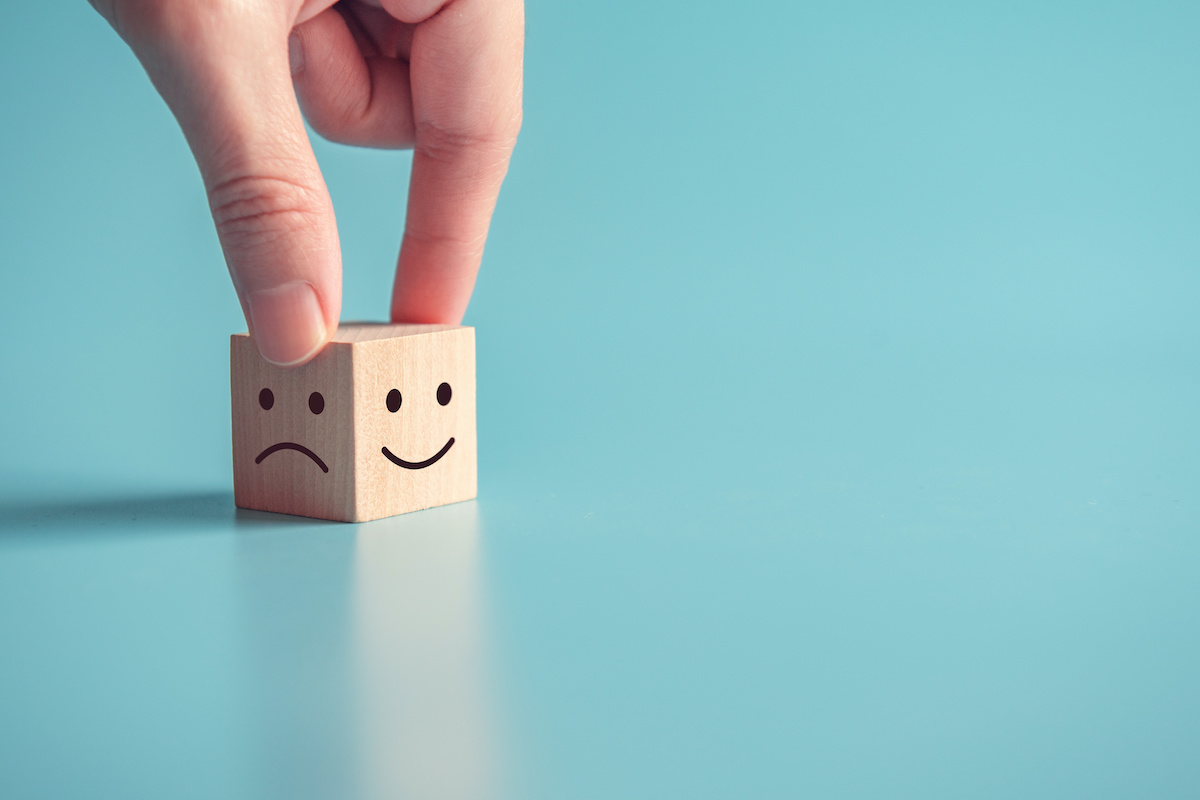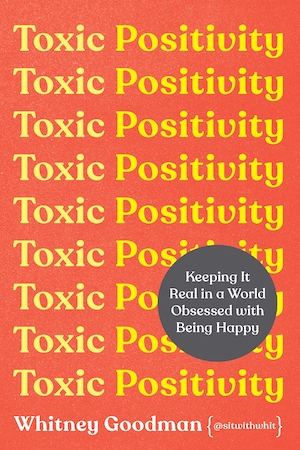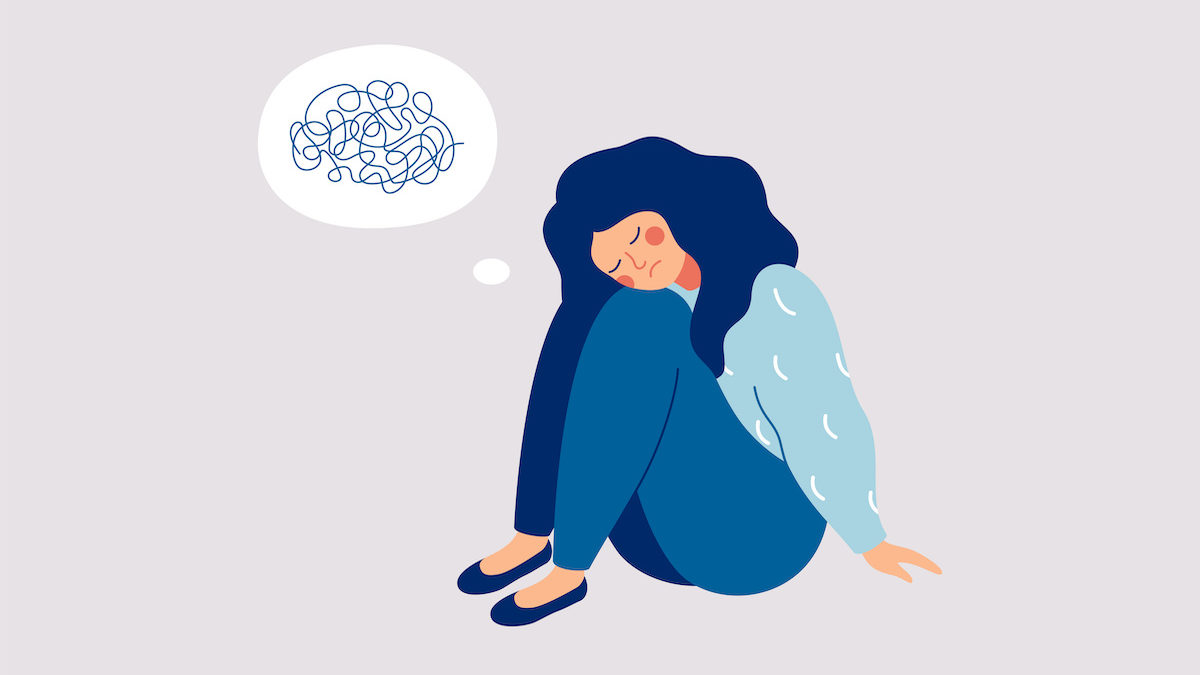The Dark Side of Positive Thinking and Why It’s Ok to Feel Sad Sometimes

Modern life is full of emotional challenges. If you’ve ever turned to the internet for comfort during a tough time, you’ll inevitably have come across the same piece of advice on loop: just think positively.
Colourful “no bad days” and “look on the bright side” platitudes are all over social media right now, reminding us to put a happy spin on whatever negative emotions may come our way.
In fact, there’s a whole million-dollar industry of self-development books and prompted journals based on this pursuit of boundless optimism. From Rhonda Byrne’s ‘The Secret’ to ‘The Power of Positive Thinking’ by Norman Vincent Peale, it’s been the core focus of many international bestsellers.
You only need to look at the rise of manifesting, the latest internet wellness craze, to see its pervasiveness in action. But a growing school of thought suggests that a type of ‘toxic positivity’ is on the rise and it’s making us more miserable than ever. So what does it mean and how can positivity be a bad thing?
Healthy vs Unhealthy Happiness
We all know a stoic who puts a positive spin on distressing life news, or maybe you’re guilty of telling everyone you’re OK when you’re really not. Either way, there’s one thing these behaviours have in common: they gloss over the pain we need to process to heal and move on.
“I’d describe toxic positivity as the unrelenting pressure to be happy,” says psychotherapist Whitney Goodman, who shares daily therapy wisdom on her popular Instagram account @sitwithwhit. “It’s pursuing happiness at all times, no matter the circumstances.”
 Goodman, who describes her work as “radically honest”, has just authored a book on the topic called ‘Toxic Positivity: Keeping It Real in a World Obsessed with Being Happy‘ (£14.99, Orion). In the book, she uses scientific research and anecdotal evidence to explain how damaging toxic positivity is to ourselves and our relationships.
Goodman, who describes her work as “radically honest”, has just authored a book on the topic called ‘Toxic Positivity: Keeping It Real in a World Obsessed with Being Happy‘ (£14.99, Orion). In the book, she uses scientific research and anecdotal evidence to explain how damaging toxic positivity is to ourselves and our relationships.
The tricky thing about it, she says, is that when we force positivity on ourselves, we deny an important emotion in return. “We’re telling ourselves and others that this emotion shouldn’t exist. It’s wrong, and if we try just a little bit harder, we can eliminate it entirely.”
Goodman first came across the phenomenon through conversations with private clients who were experiencing immense pressure to feel happy 24/7. “When I joined Instagram as a therapist in 2018, I wanted to promote my practice and found that I was being constantly bombarded with posts about being grateful, positive, and happy.
“In conversations with other people in my clinic, I noticed that so many others were absolutely exhausted by the pressure to be happy all the time. Collectively, we were becoming more disconnected because of this advice.”
Toxic positivity can show up in lots of different ways. It might be a friend who tells you “everything happens for a reason” instead of acknowledging your hurt after a messy breakup. Or it could be the times you feel guilty for having fears and worries when everyone else around you is seemingly so optimistic.
At its core, it’s a type of creeping pressure that tells us to move on and feel better — far more swiftly than we’re emotionally ready to.
Deep, Long-Term Effects
Unsurprisingly, all this emotional fakery isn’t great news for our mental wellbeing. “Toxic positivity is harmful in a couple of different ways,” warns Goodman.
“Firstly, it creates a feeling of shame when we experience emotions that are deemed negative”. The truth, she says, is that there are no ‘good’ or ‘bad’ emotions. All emotional states are useful to human development as they help us to understand our pain and set healthy boundaries with others.
“As humans, we feel so many different emotions,” agrees NLP (Neuro-Linguistic Programming In Therapy) trainer Rebecca Lockwood, who is the founder of The Yes I Can Method Academy (rebeccalockwood.org.uk). “It’s completely normal to feel sad and disappointed, or angry, and it’s essential that we acknowledge these emotions rather than trying to suppress them.”
Toxic positivity is an easy trap to fall into as it dives headfirst into the feelings that we naturally crave more of, like joy and happiness, while bypassing the emotions that are more difficult to sit with. Goodman says that while it may feel good to give in to these rebound emotions at the time, this can inhibit connection with others, isolating us further. “Put it this way, if I think that you are always ok and never struggling, I’m not going to share my struggles with you. This makes us feel even more alone in our pain.”

This masking process is likely more debilitating than we think. Previous studies have found that hiding feelings can actually cause significant psychological distress, disrupting our ability to regulate our emotions.
Left unhampered, toxic positivity may even trigger deeper mental health concerns, contributing to burnout, anxiety, depression and feelings of low self-worth. “It’s easy to see how this happens, as toxic positivity blames the individual for all of their problems and really inhibits them taking an inventory of what is wrong and how they can improve their world,” says Goodman.
The Solution? Showing Up As Ourselves
In the age of social media, there’s an unspoken pressure to spotlight the good stuff in life – and Goodman says that kind of social echo chamber can quickly lead to comparison culture. When everyone else seems happy, it can make your unhappiness feel all the more brutal.
But there’s a radical way to overcome the pressure to be perfect: feel your pain instead of pretending it doesn’t exist. “Work on labelling your feelings,” advises Goodman. “When an emotion is felt in your body or you notice your mood is shifting, try to give it a name. Journaling can be a helpful way to work through difficult emotions and experiences too.”
She continues: “Therapy is always a great way to learn how to speak neutrally about your feelings, as well as how to stop using toxic positivity in everyday situations.”
It’s also useful to remember that ‘bad’ emotions can be constructive too. Pain can cause us to rethink our past behaviour, analysing what went wrong so we can avoid future emotional turmoil. Through the healing process, we recognise our mistakes and improve our emotional intelligence. While undoubtedly uncomfortable to experience, it can also make the happy moments in life feel all the more sweeter.
“Break up with the quest of always being happy,” urges Goodman. “It’s ok and normal to experience a wide variety of emotions. That’s what makes you human.”


















